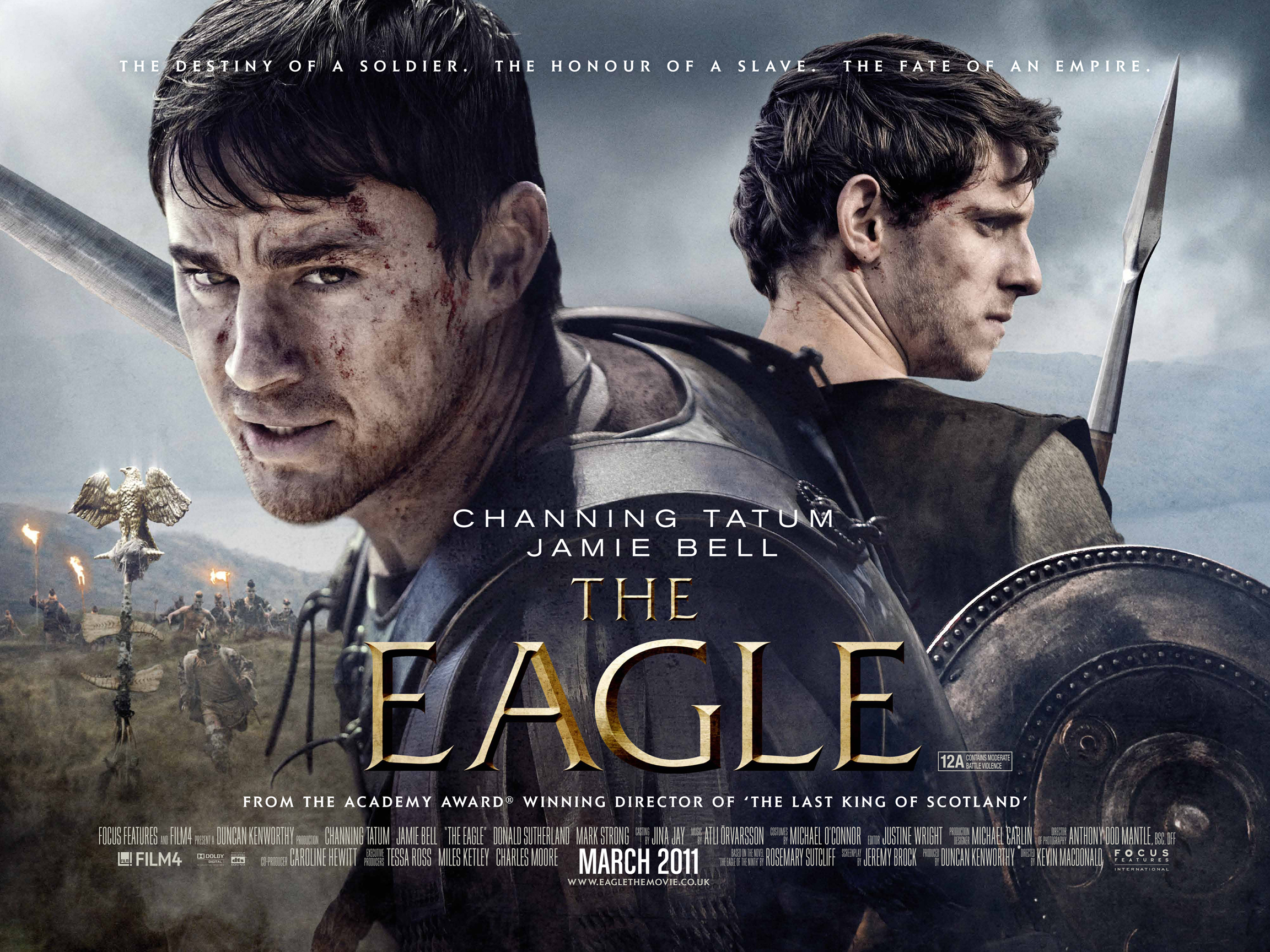“The Eagle” tells the story of a Roman centurion and his slave as they set out together on a journey for a lost statue, developing an unexpected bond along the way. Unexpected, that is, to anyone who has managed to miss the several thousand other movies of the two-opposite-heroes-must-forget-their-differences-and-band-together-to-succeed sub-genre that had been “done to death” before most of this generation was even born.
The characters
Channing Tatum plays Marcus Aquila, a soldier whose father led the legendarily doomed ninth Roman legion through second century England, possessing an eagle statue that holds the key to restoring Aquila’s family honor. He brings with him the British slave Esca (Jamie Bell). The usually reliable Donald Sutherland also makes an appearance, in a disappointing performance as Aquila’s uncle. He looks bored when he should be excited; sarcastic when he should be sincere. Bell is by far the most convincing performer in the film, especially when compared to Tatum, whose head may as well be a wooden stump. It’s hard to care about Aquila’s quest to restore his family honor when Aquila doesn’t seem to himself.
After failing to acquire official Roman support, Marcus resolves to venture through the hostile territories of Britain, armed with only his slave and his monotone facial expressions. He attempts to take the eagle back from a savage tribe that is reportedly using it as their totem. This plan is beyond unrealistic, and has a chance of working only because it is being shown in the form of a Hollywood movie. Judging from the cinematography, director Kevin Macdonald wants the film to have a gritty, realistic tone. However, he gives it a plot that sounds like it was reworked from a 1980s Arnold Schwarzenegger movie.
Execution disappoints
Perhaps the film’s biggest issue is that it fails to properly execute even its cliches. The audience knows that the two leads are going to bond, so what enjoyment they get should be in seeing the intricacies of how that occurs. From getting to know their personalities, they should understand how two humans beings can grow to put aside their differences. However, “The Eagle” forgoes most of this development, leading to a series of character actions that make little sense and gives the audience no reason to consider them as real human beings. The script wants them to begin as hostiles and end as friends, but doesn’t explain why.
The lack of character development is made even more frustrating by the several narrative lulls that the film goes through. The proper plot does not start until nearly 40 minutes in, and what the audience sees beforehand has little relevance to the characters or the story as a whole.
In spite of these issues, the film is still written poorly, containing dialogue that seems only to exist to tell the audience what the filmmakers didn’t think we were smart enough to figure out ourselves. Take, for example, when Esca is first introduced. It is in a brutal arena, where the lean and barely armed Esca faces off against an armored, muscle-bound gladiator. The stacked-deck nature of the fight should be obvious to most, but filmmakers evidently felt the need to have Sutherland drone on that the fight is unfair. Thanks Sutherland, can we now move on to the lesson about how water is wet?
Film creates good atmosphere
What the film does extremely well, however, is set its atmosphere and production design. Whether in the more majestic environments of the Roman settlements, or the dark tents of the savage villages, the atmosphere often tells a better story than the script. It’s far more horrifying to see the human bones hanging from the tribesman’s walls than to hear the awkwardly spoken references to cannibalism. Second century England is not a commonly explored time and location in film, but the mystique provided here makes me wish that it were.
Ultimately, “The Eagle” is a film that is a far better film to look at than to listen to or think about. Curious onlookers should turn towards last year’s “Centurion,” a still flawed but much better treatment of similar source material.







